Living with Covid in Nice 2
Seeing like a state
Once you get over the obvious comparisons with the lockdown situation we left at home––enjoying the novelty of shops, theatres, and cafes mostly open; the absence of masks outdoors; of a summer lifestyle that feels suspiciously like old-time normal––you start to wonder.
My main realisation is the extent to which you are locked within certain bureaucratic and technological parameters and how difficult it would be/is to live outside them.
The entire system of pass sanitaire, and other evidence of having either been tested or vaccinated, is built almost entirely on the smartphone. This is fine if you comply—the process of having your app scanned is quick and painless (when it happens at all; it is still a bit arbitrary)—but if you can’t produce the app, things get trickier.
And dog knows what data they are collecting.
We still don’t have a pass sanitaire, and the wait time, we have been informed, has blown out to 18 days.
This means we must get tested every three days, at at least 25 Euro a pop for each of us.
Last week, we needed a test on Sunday, but no pharmacies were open in central city or the surrounds where we are staying. Our only option was to tram out to the airport to the pharmacy there.
The round trip is about an hour-and-a-half, and it took another hour to get the rapid-antigen test. It cost 36 Euro each, the most we have paid.
We were given a written (paper) result within about ten minutes and told the QR code electronic result (necessary for the app) would be texted/emailed to us soon.
Two hours later it hadn’t arrived, so at the cafe we went to for lunch we had to show the paper test result, and this caused all sorts of umming and arring. It was eventually accepted, but it threw them out not being able to simply scan the app. My point being, anything outside a loosely articled but tightly defined ‘normal’ causes problems.
As nice (sorry) as it is to move around relatively freely, there are occasions where your vulnerability is rubbed in your face.
On Monday, the three of us caught a bus to a mountain-top village called Eze, one of those ridiculously gorgeous medieval towns that exist in this part of the world.
We picked up the local bus about two-thirds of the way through its route and it was standing room only when we got on. Two more stops and we were crammed into the aisle, and I would’ve guessed we had reached some legal-limit capacity, until we made at least four more stops going up the hill and added yet more passengers.
Yes, everyone was wearing masks––a few dicknoses, inevitably––but we were all crammed in so tight that I doubt they had much prophylactic effect.
A similar thing happened at dinner the other night (yes, we are eating out way too much, sigh). We were checked in with the app, then shown to a table for two between two other tables for two, pushed right up against each other, touching elbows with our fellow guests. No sense at all of—or any vague attempt to—social distance.
It all reinforces the idea that ‘living with Covid’ is an ongoing acceptance of exposure. That’s what living with Covid means. And a humane discussion can’t be had about that independently of discussions about what supports are in place—from the financial to the medical. It isn’t just about who wears a mask or what app you use.
I still haven’t made up my mind what I think about all this.
While I chew it over, here are a few more photos from Eze, for all those who keep emailing me to post more touristy shots for their vicarious pleasure.
Stay safe, everyone. More to come, including news of Noah’s first performance, and some thoughts on what those Melbourne protests look like from this distance.


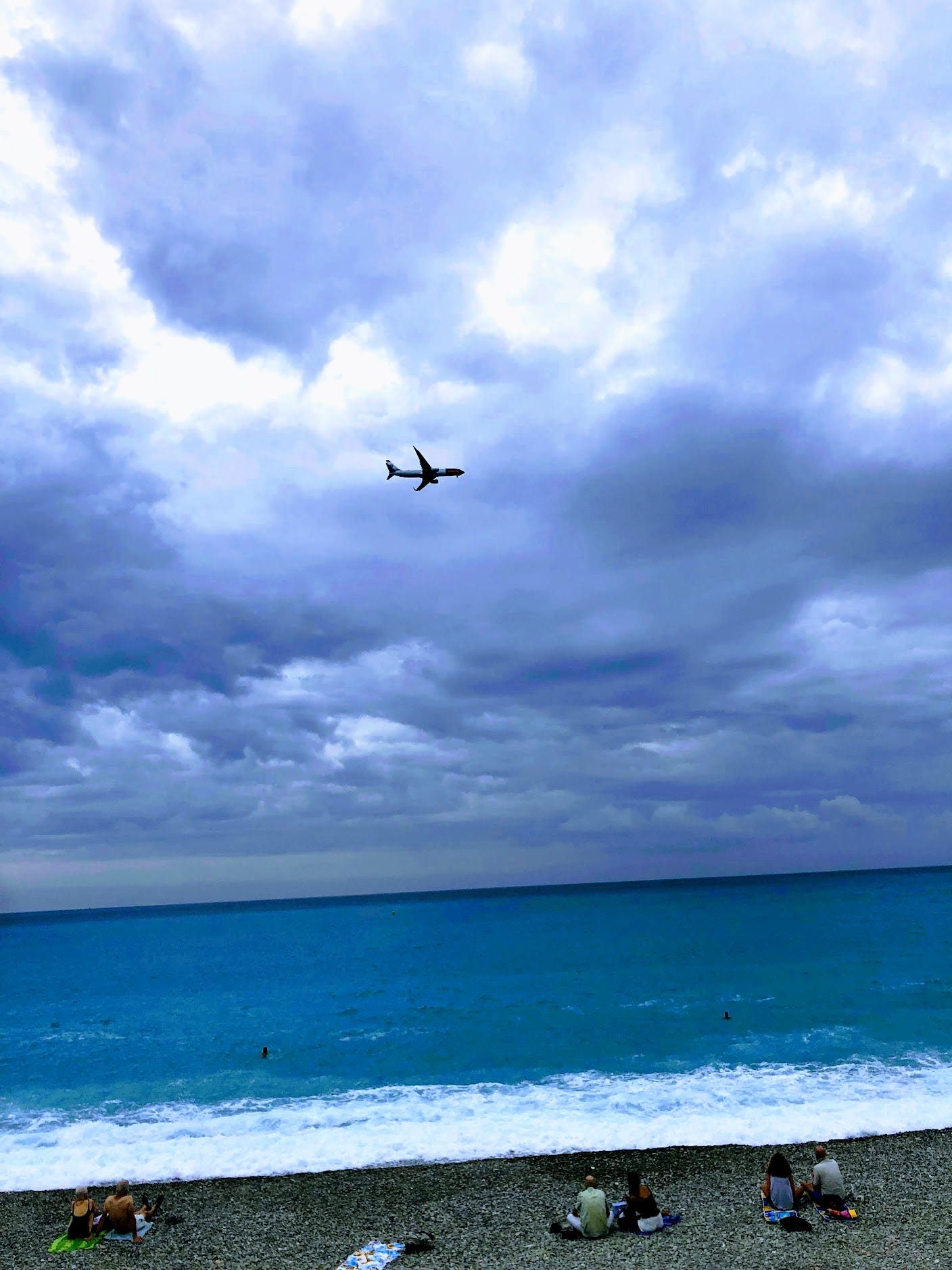

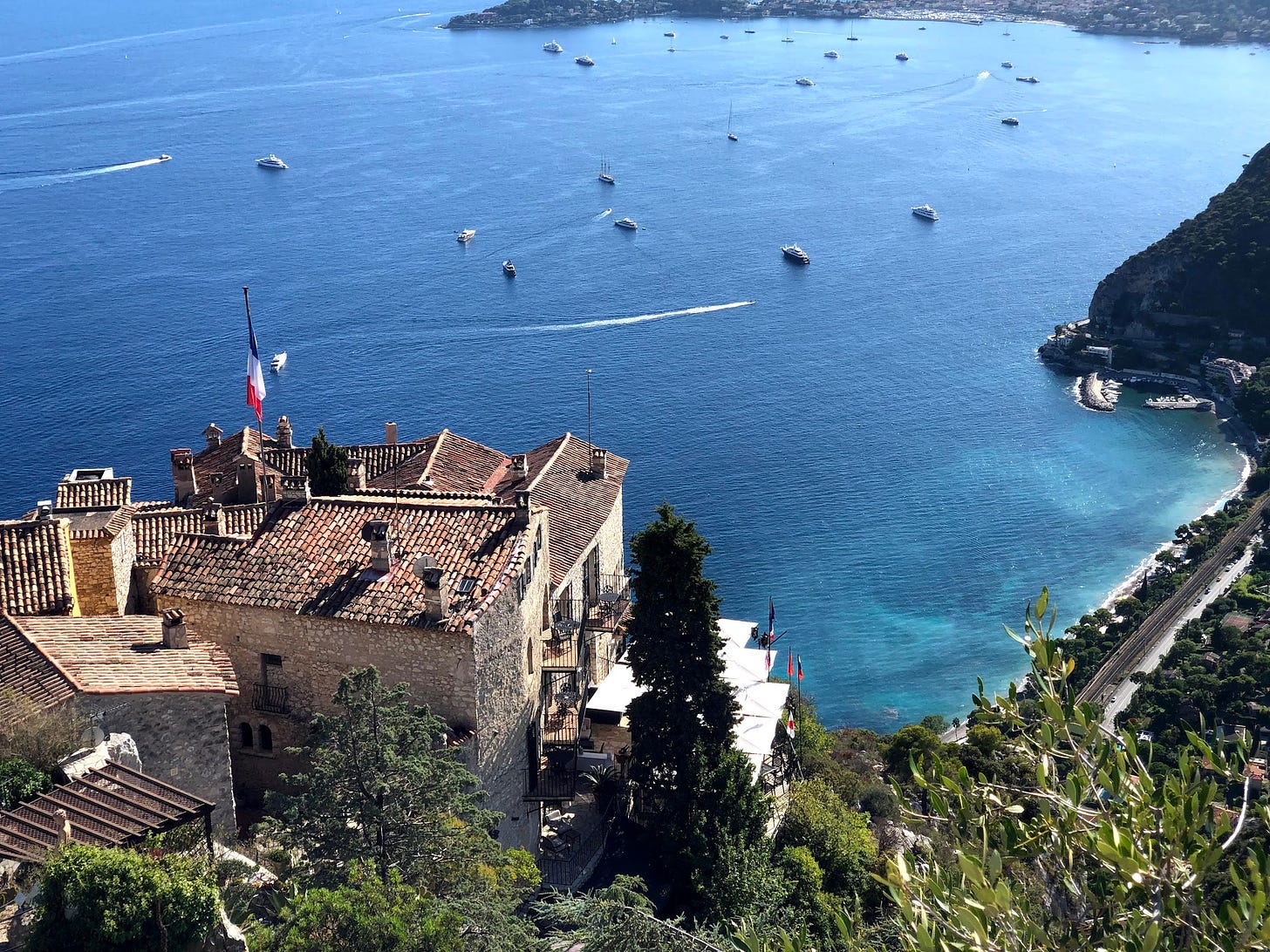

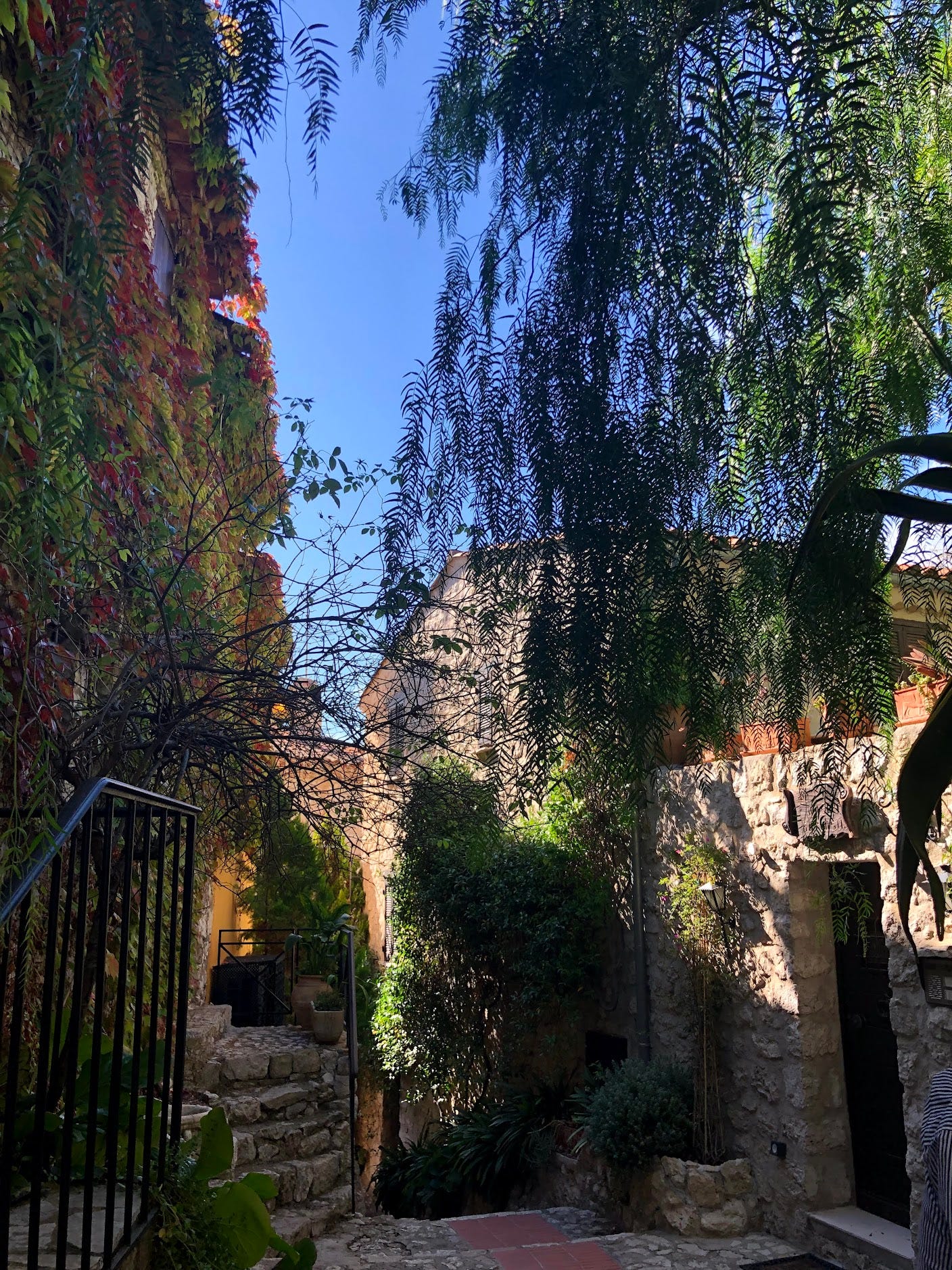


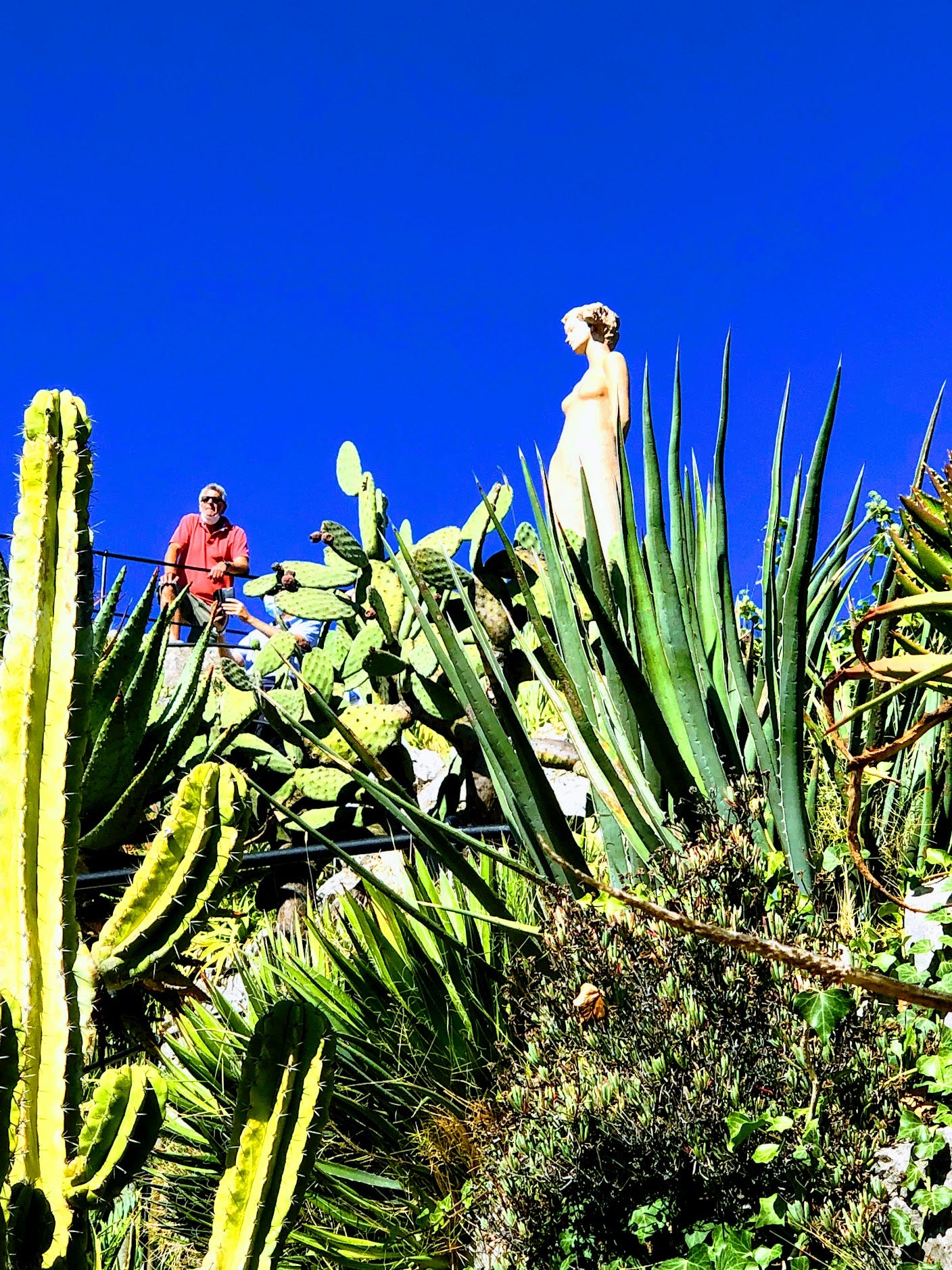

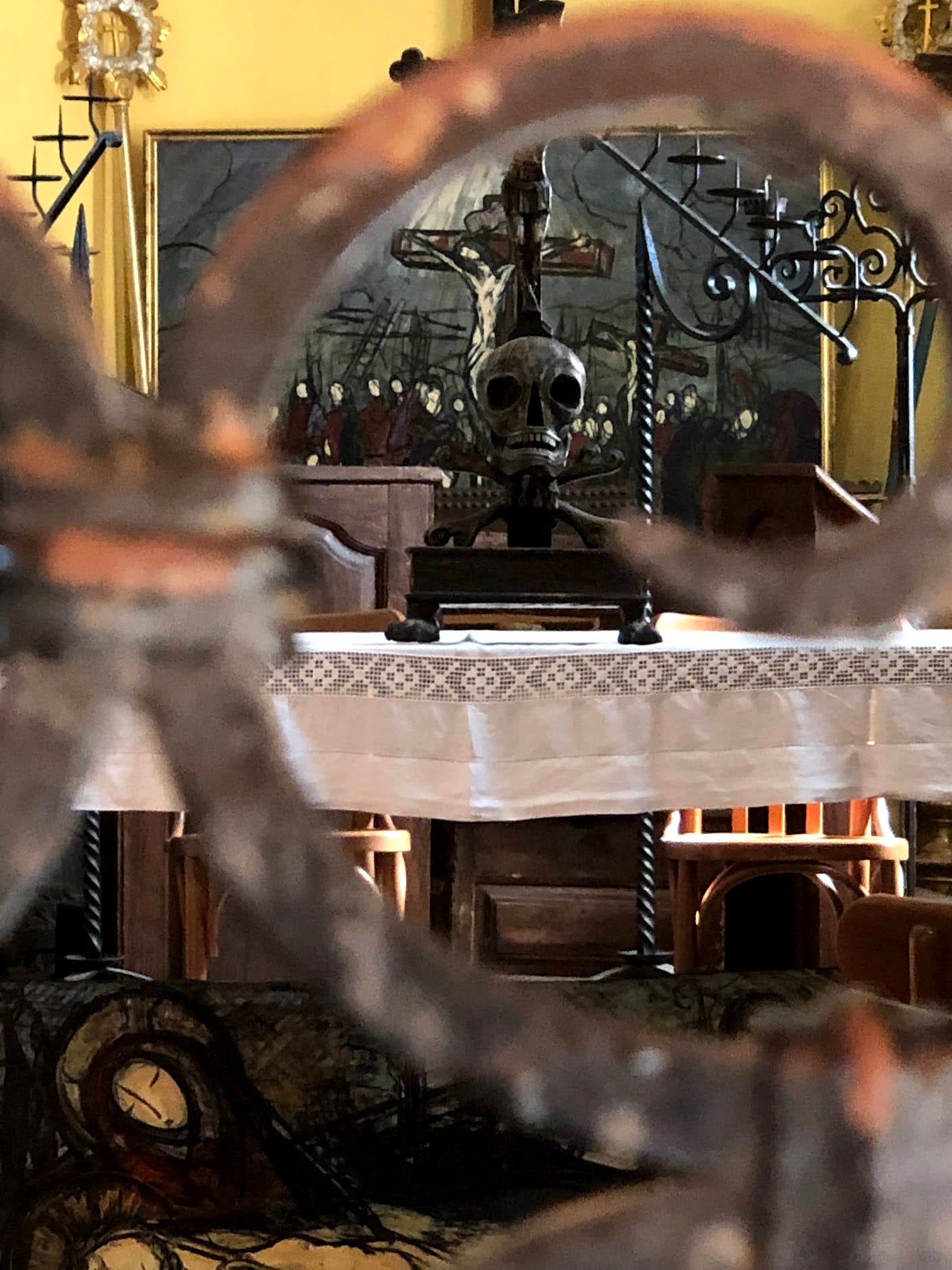
You make a good point about living with covid being living with exposure. I don’t think that’s a conversation we’ve had in Australia yet. The narrative is we get to 80% vaccinated and then we go back to “normal”, and the insinuation is that the virus magically goes away and we’re in a pre-covid normal again, but that is an outright lie which I think will end very badly for people when it’s exposed.
Love the photos and the updates, please keep them coming! It must be so frustrating dealing with all the bureaucracy (and the costs) - I guess that lies ahead for all of us.